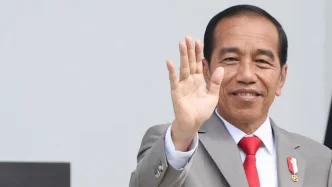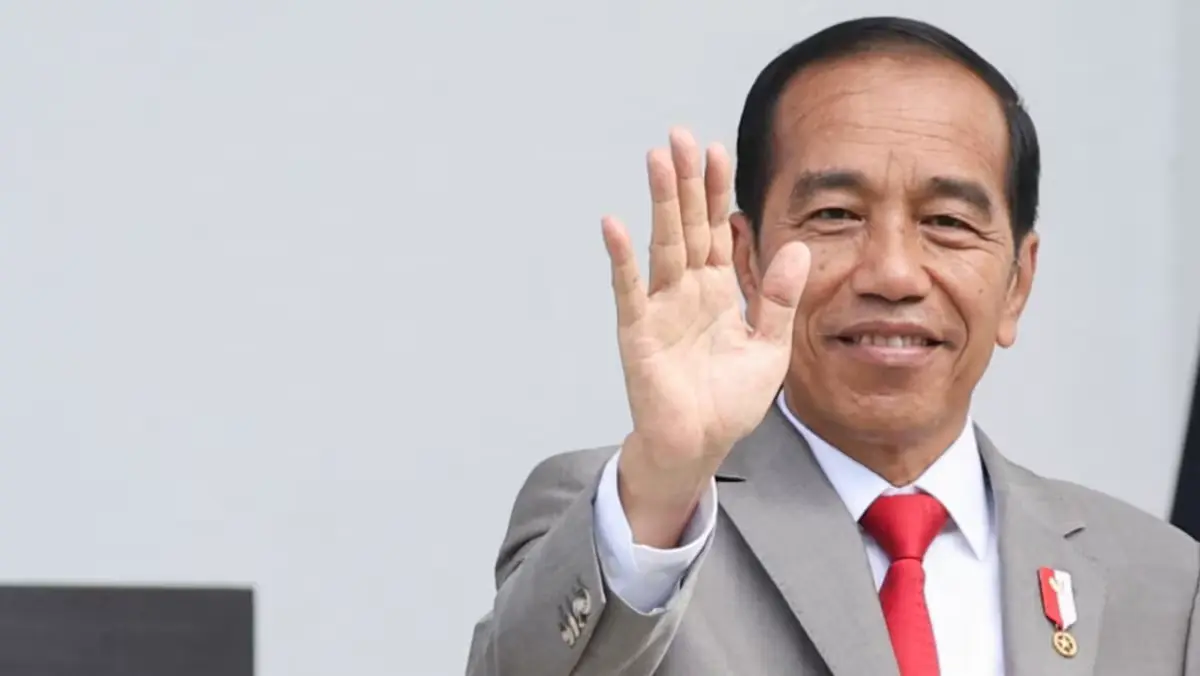Six months after stepping down as Indonesia’s president, Joko Widodo, widely known as Jokowi, finds himself at the center of a legal maelstrom. The former leader, who served two terms from 2014 to 2024, is facing multiple lawsuits that analysts suggest reflect deep-seated frustrations with his decade-long tenure. The cases, ranging from allegations of fraudulent academic credentials to unmet promises on a national car project, have reignited debates about his legacy and raised questions about the political motivations behind the legal challenges.
A Barrage of Legal Challenges
In Surakarta, Central Java—Jokowi’s hometown—proceedings began last week at the district court on two civil lawsuits. The first, filed by legal practitioner Muhammad Taufiq, questions the authenticity of Jokowi’s high school and university diplomas. Taufiq argues that if proven false, these credentials could undermine the legitimacy of Jokowi’s earlier roles, including his tenure as mayor of Surakarta from 2005 to 2012, and by extension, his presidency. The second lawsuit, brought by 19-year-old local resident Aufaa Luqmana, accuses Jokowi of misleading the public over the Esemka car project, a locally made vehicle brand he once promoted as a symbol of national industry, promising mass production that never materialized.
Jokowi was not present at the initial hearings, as he was en route to the Vatican to represent President Prabowo Subianto at the funeral of Pope Francis. His legal team stood in his place, facing a courtroom drama that has captured national attention. Taufiq, the plaintiff in the diploma case, has publicly denied that his lawsuit is a publicity stunt, emphasizing the personal risk of challenging a figure of Jokowi’s stature. “I’m not anyone’s lap dog, and this isn’t about seeking mediation or money” he told local media, underscoring his intent to pursue accountability.
Similarly, Sigit Sudibyanto, the lawyer representing Aufaa in the Esemka case, dismissed speculation about ulterior motives. “Everyone is free to make their assumptions” he stated, maintaining focus on the core allegation of broken promises surrounding the car project.
Political Motivations or Genuine Grievances?
Political analysts are divided on the significance of these lawsuits. Aditya Perdana of the think tank Algoritma suggests that the legal actions may stem from individuals or groups disillusioned after being sidelined during Jokowi’s administration. “Now that he’s no longer president, they see a moment to pursue legal action” Perdana noted, hinting at opportunistic timing rather than purely principled objections.
Dedi Kurnia Syah of Indonesia Political Opinion offers a broader perspective, arguing that the lawsuits reflect accumulated dissatisfaction over Jokowi’s ten-year rule. “Throughout his decade in office, Jokowi faced a number of legal complaints, but few materialized into serious threats due to his political standing” Dedi explained. He believes the current wave of litigation is a release of pent-up frustration, though he cautions that not all cases may be aimed at genuine accountability. “Some of these lawsuits could be mere legal gimmicks” he said, suggesting they might distract from more severe allegations, including claims of corruption and nepotism involving Jokowi and his family.
Indeed, beyond the Surakarta lawsuits, a separate complaint filed in January with Indonesia’s Corruption Eradication Commission (KPK) by activists and academics accuses Jokowi and his family of corruption, collusion, nepotism, and money laundering. The complaint gained traction after the Organized Crime and Corruption Reporting Project (OCCRP) named Jokowi the 2024 Most Corrupt Person of the Year, a designation that has fueled public and legal scrutiny. While no formal charges have been confirmed, the allegations cast a shadow over his post-presidency, raising questions about whether the current lawsuits are part of a broader effort to tarnish his reputation or divert attention from these graver claims.
A Double-Edged Sword for Public Image
Despite the potential damage of negative headlines, some analysts argue that the legal battles could paradoxically bolster Jokowi’s visibility. Aditya Perdana posits that the lawsuits keep Jokowi’s name in the public eye, potentially sustaining his relevance in Indonesian politics. “Negative headlines still keep his name in the public discourse” he remarked, suggesting that Jokowi could spin the legal challenges as personal attacks to rally public sympathy and support.
Conversely, Dedi Kurnia Syah warns that a successful lawsuit could inflict lasting harm on Jokowi’s reputation, particularly if evidence substantiates claims like the fake diploma allegations or unfulfilled promises on projects like Esemka. Public perception, already strained by unresolved questions about his administration’s transparency, could shift further against him if the courts rule unfavorably. For now, the outcomes remain uncertain, with Jokowi’s legal team maintaining silence on the specifics of the cases.
Underlying Political Tensions
Beyond the courtroom, the lawsuits have sparked speculation about tensions between Jokowi and his successor, President Prabowo Subianto. Some observers point to Jokowi’s lingering influence within certain factions of the current administration as a possible undercurrent fueling the legal challenges. Aditya Perdana suggests that the controversies might serve Jokowi’s interests by reinforcing his political relevance, while also providing an opportunity to portray himself as a victim of orchestrated attacks. “Lawsuits could usually be spun as attacks, allowing Jokowi to rally support” he noted.
The dynamic between Jokowi and Prabowo remains a topic of intense discussion in Indonesian political circles. While Jokowi officially stepped down in October 2024, his shadow looms large, with some cabinet members reportedly still aligned with his vision. This perceived influence has led to murmurs of unease within Prabowo’s camp, though no direct evidence links the current administration to the lawsuits. If tensions do exist, they could shape the trajectory of these legal battles, potentially amplifying their political significance.
Legacy Under Scrutiny
Jokowi’s presidency was marked by significant infrastructure development, economic reforms, and efforts to position Indonesia as a global player. Projects like the relocation of the capital to Nusantara in Kalimantan and high-speed rail initiatives underscored his ambition to modernize the nation. However, his tenure was not without criticism, with accusations of prioritizing business interests over environmental concerns and allegations of political favoritism clouding his achievements. The Esemka project, in particular, became a symbol of unfulfilled promises—a vision of industrial self-reliance that failed to materialize despite early fanfare.
The diploma allegations, if substantiated, could strike at the heart of Jokowi’s public narrative as a self-made leader who rose from humble beginnings to the presidency. While no evidence has yet confirmed the claims, the mere existence of the lawsuit fuels skepticism among segments of the population already disillusioned by perceived inequities during his rule. The broader corruption allegations tied to his family further complicate his legacy, as they suggest systemic issues that may have persisted under his watch.
Regional and International Implications
Indonesia, as Southeast Asia’s largest economy and a key player in regional politics, often sets precedents that ripple across the region. Jokowi’s legal troubles could influence how other former leaders in neighboring countries like Malaysia or Thailand are held accountable post-tenure. The cases also highlight the challenges of transitioning power in democracies where personal influence often outlasts formal authority. Internationally, the corruption allegations tied to the OCCRP nomination could impact Indonesia’s reputation among investors and diplomatic partners, though the immediate effects remain speculative.
For now, the focus remains on the Surakarta courtroom and the unfolding legal saga. The lawsuits against Jokowi are unlikely to resolve quickly, given the complexity of the allegations and the high-profile nature of the defendant. Legal experts suggest that even if the cases are dismissed, the public discourse they generate will continue to shape perceptions of Jokowi’s presidency for years to come.
Awaiting the Verdict
As Indonesia watches this unprecedented legal chapter unfold, questions linger about the true motivations behind the lawsuits and their potential impact on the country’s political landscape. Are these cases genuine attempts to seek justice, or are they tools in a larger game of political maneuvering? The answers may only emerge with time, as the courts weigh evidence and the public grapples with the legacy of a leader once seen as a beacon of populist hope.
For Jokowi, the road ahead is fraught with uncertainty. Whether these legal battles will tarnish his image or reinforce his resilience remains an open question, one that could redefine not just his place in history, but also the contours of accountability in Indonesian governance.
















